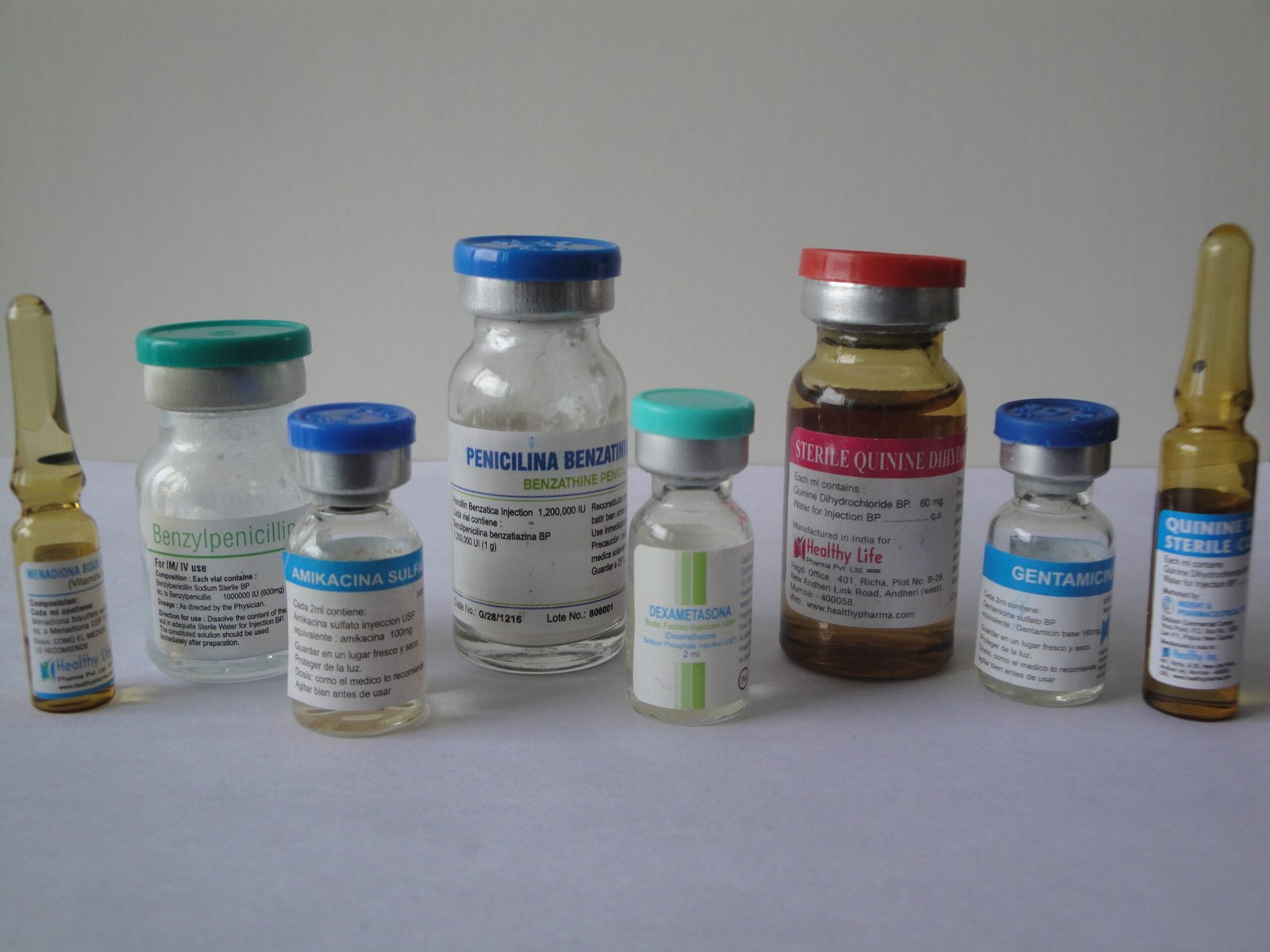Description
Thiamine Injection
Malabsorption Syndromes: Conditions that affect the absorption of nutrients in the gastrointestinal tract, such as celiac disease or inflammatory bowel diseases, may lead to thiamine deficiency. Thiamine injections can be prescribed to address deficiencies in these cases.
Post-Surgery or Trauma: Some medical procedures or traumatic events may increase the demand for thiamine. Thiamine injections may be used in postoperative care or in situations where the body’s requirements for thiamine are elevated.
Chronic Illnesses: Certain chronic illnesses or medical conditions may compromise thiamine levels in the body. Thiamine injections might be recommended as part of the overall treatment plan for patients with conditions affecting nutrient absorption or utilization.
Neurological Disorders: Thiamine is crucial for proper neurological function, and thiamine injections may be considered in the management of certain neurological disorders where thiamine deficiency is a concern.
It’s important to note that the usage of Thiamine Injection BP should be determined by a healthcare professional based on the specific needs and condition of the individual. The dosage and frequency of administration will vary depending on the severity of thiamine deficiency and the underlying cause. Self-administration or misuse of thiamine injections can have adverse effects, and therefore, it is crucial to follow medical advice and prescription guidelines.
Thiamine injections labeled as “Thiamine Injection BP” (British Pharmacopoeia) are typically used for therapeutic purposes in situations where oral supplementation is not sufficient or feasible. Here are some common usages of Thiamine Injection BP:
Treatment of Thiamine Deficiency:
Thiamine deficiency can occur in individuals with poor nutrition, alcohol use disorder, malabsorption conditions, or certain medical conditions. Thiamine injections are used to rapidly correct thiamine deficiency in these cases.
Beriberi:
Thiamine deficiency can lead to a condition called beriberi, which affects the nervous system and cardiovascular system. Thiamine injections are administered to individuals with beriberi to restore thiamine levels and alleviate symptoms.
Wernicke-Korsakoff Syndrome:
This is a neurological disorder often associated with chronic alcoholism. Thiamine deficiency is a common factor in the development of Wernicke-Korsakoff syndrome. Thiamine injections are part of the treatment to address the deficiency and neurological symptoms.
Alcohol Withdrawal:
Thiamine is often given to individuals undergoing alcohol withdrawal, as they may be at an increased risk of thiamine deficiency. It helps prevent the development of Wernicke-Korsakoff syndrome during the withdrawal process.
Malabsorption Disorders:
Thiamine injections may be prescribed for individuals with malabsorption disorders (conditions that affect the absorption of nutrients from the digestive tract), as these individuals may have difficulty absorbing thiamine from oral sources.
Prevention in High-Risk Groups:
Thiamine injections may be used for preventive purposes in certain high-risk groups, such as individuals with chronic illnesses, gastrointestinal disorders, or those at risk of malnutrition.
It’s important to emphasize that the use of Thiamine Injection BP should be under the guidance and supervision of a qualified healthcare professional. The dosage and frequency of thiamine injections will depend on the specific medical condition of the individual, and healthcare providers will tailor the treatment plan accordingly. Thiamine injections should not be used without proper medical evaluation and prescription.
Thiamine injections, labeled as “Thiamine Injection BP” (British Pharmacopoeia), are used for various medical purposes, primarily to address thiamine deficiency and related conditions. Thiamine, also known as vitamin B1, is an essential nutrient that plays a crucial role in energy metabolism. Here are some common usages of Thiamine Injection BP:
Thiamine Deficiency Treatment:
Thiamine injections are administered to individuals with diagnosed or suspected thiamine deficiency. This deficiency may result from inadequate dietary intake, malabsorption disorders, alcohol dependence, or other medical conditions.
Wernicke-Korsakoff Syndrome:
Thiamine deficiency can lead to neurological disorders, including Wernicke-Korsakoff syndrome. Thiamine injections are often used in the treatment of this condition, which is commonly associated with chronic alcoholism.
Beriberi:
Beriberi is a condition caused by thiamine deficiency and can manifest as cardiovascular, neurological, and muscular symptoms. Thiamine injections are part of the treatment regimen for beriberi.
Malnutrition:
Thiamine deficiency can occur in individuals with malnutrition, whether due to inadequate dietary intake or malabsorption. Thiamine injections may be used in cases of severe malnutrition.
Gastrointestinal Disorders:
Certain gastrointestinal disorders, such as Crohn’s disease or malabsorption syndromes, can lead to thiamine deficiency. Thiamine injections may be prescribed to address deficiencies in these cases.
Prevention in High-Risk Populations:
Thiamine injections may be administered preventively in individuals at high risk of developing thiamine deficiency, such as those with chronic alcoholism, certain medical conditions, or those undergoing bariatric surgery.
It’s important to note that the usage of Thiamine Injection BP should be determined by a healthcare professional based on the individual’s specific condition and needs. Thiamine injections are typically administered under medical supervision, and the dosage and duration of treatment will depend on the severity of the deficiency and the underlying cause.



